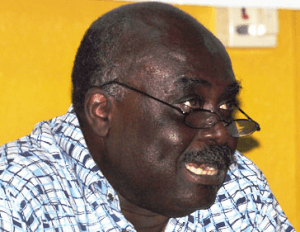Dr. Wereko-Brobby calls for suspension of TV license fees

Dr Charles Wereko-Brobby, a policy analyst has called for the suspension of the proposed collection of television license fees by the Ghana Broadcasting Corporation (GBC).
In a statement copied to the Ghana News Agency (GNA), Dr Wereko-Brobby contended that the television license law on which the collection of the fees was based ‘is greatly flawed, and indeed unlawful’.
He, therefore, suggested that those flaws be corrected before the law was forwarded to Parliament again for consideration.
It would be recalled that on July 6 this year, the Chairman of the National Media Commission (NMC), Ambassador Kabral Blay Amihere announced that the GBC would resume the collection of TV licenses with effect from August to ensure that “it is better placed financially to fulfil its mandate as a public broadcaster”.
However, in the view of Dr Wereko-Brobby, GBC had long ceased to be a ‘Public Broadcaster’ and therefore was not deserving of a publicly funded and compulsory license fee.
He said Ghana’s media landscape had undergone a complete transformation and that GBC was no longer the main informer of the people’s discretion. “Sadly, the GBC has abandoned its role as a Public Broadcaster in its attempt to retain its relevance and retain the audiences who are deserting it in droves to the independent alternatives”.
Dr Wereko-Brobby, also popularly known in Ghanaian media circles as ‘Tarzan’, explained that the internationally accepted definition of Public Broadcasting was “any independent, noncommercial broadcasting done with public and government funding”.
He said going by the standard definition, the GBC today did not qualify as a public Broadcaster. “Firstly, it operates as a commercial broadcaster, charging advertising fees in competition with the private broadcasters who do not get license fees.
“Secondly, and in spite of the NMC’s best endeavours, the GBC has increasingly become a propaganda mouthpiece of whichever political party happens to be in Government, having long abandoned its public broadcasting obligation to be the platform to “ afford fair opportunities and facilities for the presentation of divergent views and dissenting opinions (Article 163)”, Dr Wereko-Brobby argued.
He indicated that although the process of downsizing the GBC and making it a true clone of the BBC as a public broadcaster might take some time, it was nonetheless necessary. “Unless and until such changes are achieved, there is no way GBC can claim or pretend to be a public broadcaster and therefore deserving of a compulsory licence fee”.
He dismissed as ‘absurd and unlawful’ suggestions that the activities of GIBA be funded from the Licence, and contended that GIBA was only an association of private businesses who had decided to invest in broadcasting, not for charity, but as a freely-chosen avenue to make some money for them.
He noted that there were almost 400 independent Radio stations and about 30 TV stations that came together to form GIBA to promote their collective interests. It was therefore up to the members to fund their association to the level that they considered appropriate for the achievement of their aims and objectives.
“If GIBA sees a justification for its collective interest to be served, it should simply levy fees on its members as it’s done by all associations which are formed by free will to protect the peculiar interest of members”, he declared.
Dr Wereko-Brobby said although the NMC was under-resourced, which drastically reduced its effectiveness, the Commission’s dependence on the Consolidated Fund was not a good idea. He suggested the NMC sought its funding from those whose activities it regulated, namely the newspapers, radio stations, TV stations and all other media of mass communication in the country.
The solution to the NMC’s funding problem was to give it a proportion of the fees currently pocketed entirely by the NCA, he opined.
Source: GNA
